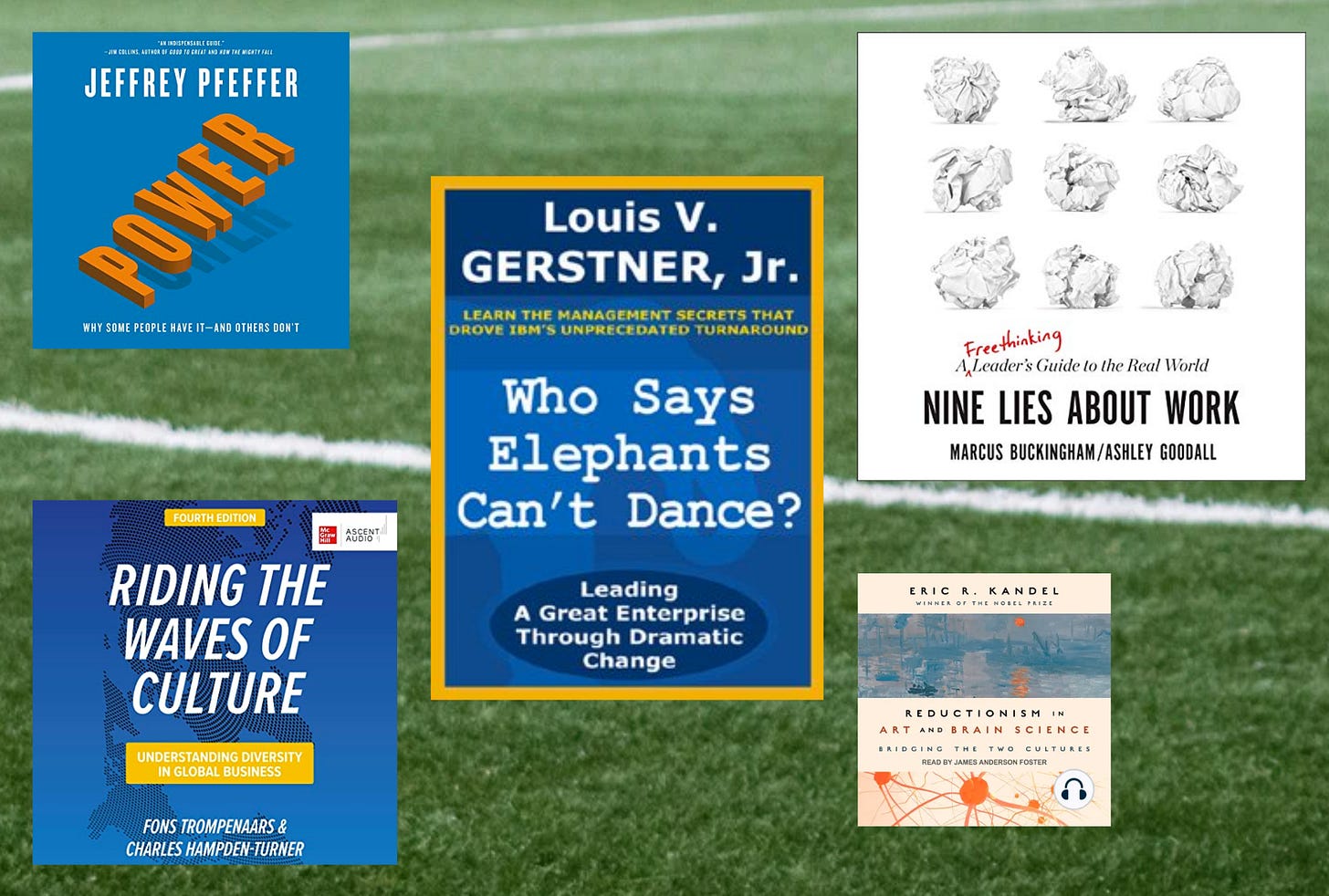The July five
the list continues...
Daily musings #578 - Monday, 22 August 2022
July was a slower month for my reading. Not as good as my May or June reads, but better than April. So 26 books in all in the last four months. Not bad indeed and I believe that my thinking has consistently changed for the better and adding this and my other readings, YouTube videos, blogs, and email newsletters, I have been further corrupted beyond repair. Which is all good.
Here are my reads for July. All these are in different subject areas and are hugely recommended and have been accretive to my thinking in different ways.
Who Says Elephants Can't Dance?: Inside IBM's Historic Turnaround by Lou Gerstner - https://www.amazon.com/Who-Says-Elephants-Cant-Dance/dp/0060523794/ Lou’s book was an interesting case study in corporate turnaround. His approaches are driven by clear philosophies and principles like not using McKinsey’s approaches, breaking siloes, focusing on the customer, globalization based on common patterns and goals, etc. were excellent to learn from. Of course, what works in one context at one time cannot be extrapolated to other situations. But there were certainly a lot of patterns to evaluate and learn from and use similar approaches by adapting them to varying contexts.
Riding the Waves of Culture, Fourth Edition: Understanding Diversity in Global Business 4th Edition by Fons Trompernars and Charles Hampden-Turner - https://www.amazon.com/Riding-Waves-Culture-Fourth-Understanding/dp/126046864X/ I love Fons and Charles work. They are non-prescriptive and cognizant of cultural differences that abound locally and internationally between countries. This book is the gold standard for anyone who wants to understand cultural dynamics and how to navigate them for any work to be done in organizations. Loved it.
Nine Lies About Work: A Freethinking Leader’s Guide to the Real World by Marcus Buckingham https://www.amazon.com/Nine-Lies-about-Work-Freethinking/dp/1633696308/ the book continues on the human dynamics in organizations that are covered by the Culture book by Fons above. Marcus is enjoyable in the way he takes on this subject and translate these into something even a layman can understand. This ties into the work that Marcus has done at Gallup and their Q12 surveys. Each of the lies is thought-provoking and something that one can’t wish away or brush under the carpet. A great way to start is the Nine Lies at work YouTube playlist with short 3-4 minutes videos that get you started on each lie. https://www.youtube.com/playlist?list=PLAs6ZuE2v2-AmO8FW3lzyt0svSbMwvVHh
Power: Why Some People Have It and Others Don't by Jeffery Pfeffer https://www.amazon.com/Power-Some-People-Have-Others/dp/0061789089/ - I had skim-read Pfeffer’s book a few years ago but it was time to catch up in full again. It was an interesting book on the dynamics of power and power play. Though my preferred power play style is influence. I got a lot of ideas on how I could use influence to have power to, power with, and power within, rather than the power-over world that I coach in.
Reductionism in Art and Brain Science: Bridging the Two Cultures by Eric Kandel https://www.scribd.com/audiobook/370310538/Reductionism-in-Art-and-Brain-Science-Bridging-the-Two-Cultures We as humans are reductionist by design. But instead of left brain reductionist approaches, art uses patterns of right brain reductionist approaches and this short book helped me look through that lens. In fact, in the organizational change work that I do, I realized that the work is to introduce art into the work, especially to the knowledge worker and the knowledge work industry that I am in. The more the art, the better the outcomes, though people do not want to be deliberate artists. The pathway to art, of course, is practice, persistence, and discipline all of which happen to be only in the minority and outliers of humans. Though the good news is that these can be taught - and therein lies the problem - only if one wants to learn. Again, we hit the reality brick wall in the fact of us being humans.



